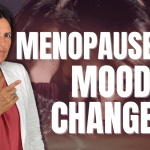Menopause Beyond the Physical Changes
Menopause is often characterized by its hallmark physical symptoms: the cessation of menstruation, hot flashes, and sleep disturbances, to name a few. However, to view menopause solely through the lens of its physical manifestations is to overlook the profound journey of transformation that it represents. Beyond the hormonal shifts lies a period of significant psychological and emotional metamorphosis. This transition extends far beyond the biological scope, marking a pivotal moment in a woman’s life where the interplay between body, mind, and spirit takes center stage. It is a natural event, yet it carries with it a weight of cultural silence and misunderstanding, making the need for a broader perspective on menopause all the more critical.
The Psychological and Emotional Impact of Menopause
The psychological and emotional landscape of menopause is as varied as the women who traverse it. For some, it is a time of liberation and relief, a release from the cyclical nature of menstruation. For others, it can be a period marked by anxiety, mood swings, and a sense of loss. The emotional impact is often compounded by societal expectations and the “fog of prejudice” that surrounds this phase of life. The psychological journey through menopause can be tumultuous, as it challenges long-held beliefs about femininity, vitality, and purpose. It is a time when many women grapple with their sense of self, confronting the ego and the fear of the unknown as they navigate this new stage of life.
The Concept of Identity During Midlife Transitions
Identity is a complex tapestry woven from the threads of our experiences, roles, and societal norms. As women enter menopause, they often face a re-evaluation of this tapestry. The midlife transition can prompt a profound questioning of identity, as roles once defined by motherhood, career, or youth begin to shift. This period offers an opportunity for growth and self-discovery, but it also demands the courage to let go of outdated identities. It is a time to declutter the self, to embrace the abyss of the unknown, and to emerge with a renewed sense of identity that is more authentic and aligned with one’s current stage of life. The menopausal journey, therefore, is not just about managing symptoms but about embracing the transformation of the self, both psychologically and spiritually.
The Role of Identity Throughout a Woman’s Life
Early Identity Formation and Societal Expectations
The journey of identity formation begins early in a woman’s life, shaped by the cultural, familial, and societal expectations that surround her. From the moment a girl is born, she is often greeted with a predefined set of roles and characteristics associated with femininity. These societal expectations can influence her self-perception and the development of her identity. As she grows, she learns to navigate the world through the lens of these expectations, which can include nurturing behavior, compliance, and the pursuit of physical attractiveness. These early experiences lay the groundwork for her understanding of self and her place within the social fabric.
The Masks We Wear: Navigating Adulthood
As a woman enters adulthood, the complexity of her identity increases. She may adopt various “masks” to fulfill the roles expected of her, such as the dedicated professional, the caring mother, or the supportive partner. These masks represent the different personas she must present in various contexts, often at the expense of her authentic self. The pressure to maintain these facades can lead to a disconnection from her true identity, as she strives to meet the often conflicting demands of her personal and professional life.
Midlife: A Time for Re-evaluation and Change
Midlife presents a pivotal moment for re-evaluation and potential change. As a woman approaches menopause, she may begin to question the identities she has constructed and the roles she has played. This period can be marked by a sense of loss, as she mourns the identities that no longer serve her, but it can also be a time of liberation and opportunity. The menopausal transition can act as a catalyst for a woman to shed outdated identities and explore new aspects of herself. It is a time when she can reassess her values, desires, and aspirations, and make conscious choices about who she wants to be moving forward. This transformative process allows her to let go of societal expectations and embrace a more authentic and self-defined identity.
In conclusion, the role of identity in a woman’s life is dynamic and multifaceted. From early formation influenced by societal expectations to the masks worn in adulthood, and finally to the transformative period of midlife, a woman’s identity is continually shaped and reshaped. Menopause, in particular, offers a unique opportunity to let go of old identities and embrace a new, more authentic self.
Letting Go of Outdated Identities During Menopause
The Process of Decluttering Old Identities
Menopause often marks a significant shift not only in a woman’s physical state but also in her sense of self. As roles and responsibilities evolve over time, the transition into menopause can prompt a profound decluttering of identities that no longer serve. This process is akin to sifting through a wardrobe, discarding garments that no longer fit or reflect one’s current style. Women may find themselves questioning long-held beliefs and societal expectations, shedding the layers of identity that have been imposed upon them or that they have outgrown. It’s a time for introspection, where one must be bold enough to ask, “Who am I beyond the roles I’ve played?”
Embracing the Abyss: The Hero’s Journey in Menopause
Menopause can be likened to the hero’s journey—a narrative pattern described by Joseph Campbell—where the hero ventures into the unknown, faces trials, and emerges transformed. For many women, menopause is the call to adventure, the push towards the abyss of the unknown self. It is a period of disorientation, where the familiar markers of identity dissolve, and one must navigate through the uncertainty. Embracing this abyss is not a sign of weakness but a courageous acceptance of transformation. It is in this space that women can reconnect with their innermost desires and strengths, often leading to a rebirth of self.
Real-Life Experiences of Identity Transformation
Real-life stories of women who have navigated identity shifts during menopause are both inspiring and instructive. They serve as testament to the resilience and adaptability inherent in this phase of life. For instance, a former corporate executive might find a new passion in community service, or a full-time parent may rediscover a love for painting that was set aside for family commitments. These narratives highlight the diversity of menopausal experiences and the potential for growth and self-discovery. They underscore the fact that letting go of outdated identities can pave the way for a more authentic and fulfilling expression of self.
In conclusion, menopause is not merely an end to fertility but a gateway to a deeper understanding of oneself. The process of decluttering old identities, embracing the abyss, and celebrating real-life transformations can lead to a powerful reconstruction of self. It is a journey that requires courage, self-compassion, and a willingness to let go of the past to embrace the new.
The Psychological Challenges of Letting Go
Confronting the Ego and Fear of the Unknown
One of the most profound psychological challenges during menopause is the confrontation with the ego and the fear of the unknown. As women transition through menopause, they often face a loss of identity tied to their fertility and youth. This can lead to a profound questioning of self and a fear of what lies ahead. The ego, which has been built upon years of societal roles and personal achievements, may resist the changes, clinging to the familiar identities that are being shed. This resistance can manifest as anxiety, denial, or even depression, as the fear of the unknown looms large. It is a time when women must grapple with their innermost selves, questioning who they are beyond their biological functions and societal expectations.
The Role of Stress and Anxiety in Identity Shifts
Stress and anxiety play significant roles in the identity shifts experienced during menopause. The hormonal changes can exacerbate feelings of stress, leading to heightened anxiety about the future. This can be particularly challenging when women are also navigating changes in their professional lives or personal relationships. The stress of managing these life alterations can compound the anxiety associated with identity shifts, making it difficult for women to embrace their evolving selves. It is essential to recognize the impact of stress and anxiety on mental health during this transition and to seek supportive strategies to mitigate their effects.
Navigating the ‘Empty Nest’ Syndrome
For many women, menopause coincides with their children leaving home, a phenomenon commonly referred to as the ‘Empty Nest’ syndrome. This life event can trigger a significant psychological challenge as it often reinforces the sense of identity loss. The home, once bustling with the energy of family life, becomes quieter, and women may struggle with a feeling of purposelessness. The departure of children can also lead to a re-evaluation of marital relationships and personal goals. Navigating this syndrome requires a redefinition of self that extends beyond the role of an active parent, and it can be a time for women to rediscover passions and interests that may have been put aside during child-rearing years.
Overall, the psychological challenges of letting go during menopause are deeply intertwined with a woman’s sense of identity. The transition can be a time of significant emotional upheaval, but it also presents an opportunity for growth and self-discovery. By confronting the ego, managing stress and anxiety, and navigating life changes such as the ‘Empty Nest’ syndrome, women can emerge from this transition with a stronger, more authentic sense of self.
Reconstructing Identity: Embracing the New Self
The Emergence of a More Authentic Self
Menopause is often portrayed as a time of loss, but it can also be a period of profound self-discovery. As the body undergoes its natural changes, many women report a parallel transformation within their sense of self. This metamorphosis can lead to the emergence of a more authentic self. Freed from the reproductive responsibilities and societal expectations that often define younger years, women may find a new voice and a clearer sense of their own desires and boundaries. This authenticity often manifests in a newfound confidence to pursue interests and relationships that resonate more deeply with their true selves.
Balancing Multiple Aspects of the New Identity
With the emergence of this more authentic self comes the challenge of balancing the multiple aspects of a new identity. The roles of mother, partner, professional, and community member do not vanish but instead evolve. Women may find themselves renegotiating these roles to better align with their new self-understanding. This balancing act requires patience and self-compassion, as it is not uncommon to feel pulled in different directions while trying to honor all facets of one’s life. The key is to find harmony between the enduring parts of one’s identity and the aspects that are being reshaped or newly discovered.
The Importance of Self-Commitment and Growth
Central to the process of embracing a new self during menopause is the commitment to personal growth. This commitment means actively engaging in self-reflection and being open to change. It involves setting aside time for personal development, whether through education, creativity, or spirituality. Growth during menopause can also mean letting go of long-held beliefs that no longer serve and embracing new ways of thinking that foster a sense of purpose and joy. This period of life can be a powerful opportunity to invest in oneself and cultivate a life that feels more aligned with one’s true passions and values.

From unhappy, dry, and sandpaper to silky, smooth and feeling good. That’s Cleo. Cleo is a 100% natural labial balm to moisture and soothe “your other lips”. Cleo is chemical-free, water-free, pH optimized and helps maintain and restore your delicate labial skin’s natural flora. Ideal for daily use or as needed. Get the most silky, lovable lips ever.
Practical Strategies for Navigating Identity Changes
Mindfulness and Self-Compassion Practices
As women enter menopause, the shift in identity can be profound. Mindfulness and self-compassion are essential tools for navigating this transition. Mindfulness allows individuals to stay present and engaged with their experiences without judgment. Practices such as meditation, deep breathing, and yoga can help maintain a sense of calm and balance amidst the changes. Self-compassion involves treating oneself with the same kindness and understanding one would offer a good friend. This can be practiced through positive self-talk, acknowledging personal achievements, and forgiving oneself for perceived shortcomings. By incorporating these practices into daily life, women can better manage the emotional rollercoaster of menopause and embrace their evolving identities with grace.
Creating Space for New Roles and Possibilities
Menopause can be a time of liberation, where the responsibilities of earlier life stages give way to new opportunities. It’s important to create space for these new roles and possibilities. This might involve setting boundaries to protect personal time, exploring new hobbies or interests, or even considering a career change. Women might find fulfillment in mentoring others, volunteering, or engaging in creative pursuits. By consciously making room for growth and exploration, women can discover new aspects of their identity that bring joy and satisfaction.
Setting Intentions and Revisiting Shelved Identities
Setting intentions is a powerful way to focus on what truly matters during the menopausal transition. Women can reflect on their past dreams and aspirations—those “shelved identities” that were set aside for family or career—and consider whether they still resonate. If so, now may be the perfect time to revisit and pursue them. This could mean going back to school, starting a new business, or traveling the world. Setting clear intentions provides direction and motivation, helping women to align their actions with their evolving sense of self.
In conclusion, navigating identity changes during menopause requires a multifaceted approach. By practicing mindfulness and self-compassion, creating space for new roles, and setting intentions for the future, women can move through this transition with confidence and purpose. The journey of menopause is not just about letting go of the old, but also about embracing the new and emerging stronger and more authentic on the other side.
Conclusion and Further Reflections
Summarizing the Journey of Letting Go and Rebirth
The journey through menopause is a profound transformation that encompasses much more than the cessation of menstruation. It is a period marked by a complex interplay of biological, psychological, and social changes that can lead to a profound re-evaluation of identity. As we have explored, the menopausal transition can prompt women to let go of outdated identities—those that no longer serve them or reflect their current reality. This process of decluttering old identities is not merely about loss; it is also about the potential for rebirth and the emergence of a more authentic self.
Throughout this journey, women may experience a range of emotions, from grief and anxiety to liberation and empowerment. The letting go of old identities can be challenging, as these identities are often deeply intertwined with societal expectations and personal history. However, the menopausal transition also offers an opportunity to embrace new roles, explore new possibilities, and set intentions for the future. It is a time for women to rediscover themselves and reaffirm their commitment to personal growth and self-care.
Encouragement to Embrace the Menopausal Transition
While menopause can be a time of uncertainty, it is also a period rich with opportunity. It is important to encourage women to embrace this transition with openness and curiosity. By acknowledging the challenges and embracing the changes, women can navigate this phase with greater ease and confidence. The menopausal transition can be a catalyst for positive change, leading to a more fulfilling and authentic life.
It is essential to recognize that menopause is not an ending but rather a beginning—a chance to redefine oneself and one’s place in the world. With the right support and resources, women can transform this period of life into a time of empowerment and self-discovery.
Resources and Support for Continued Exploration
As women navigate the menopausal transition, it is crucial to have access to resources and support that can aid in this process of transformation. This support can come in various forms, including:
- Healthcare professionals who understand the complexities of menopause and can provide guidance on managing physical symptoms.
- Counseling and therapy to help address the emotional and psychological aspects of the transition.
- Support groups and communities where women can share their experiences and learn from one another.
- Educational materials and workshops that offer information on menopause and strategies for coping with changes.
- Mindfulness and self-compassion practices that can help women stay grounded and cope with stress.
By leveraging these resources, women can better understand the menopausal transition and find strategies that work for them. It is important to remember that each woman’s experience is unique, and what works for one may not work for another. Therefore, continued exploration and personalization of support are key to navigating this transformative journey successfully.
In conclusion, the menopause is not just a biological event but a significant life transition that offers the chance to let go of old identities and embrace a new, more authentic self. With encouragement, support, and resources, women can turn this period into a time of growth and empowerment. The journey of letting go and rebirth is not without its challenges, but it holds the promise of a richer, more fulfilling life beyond menopause.












